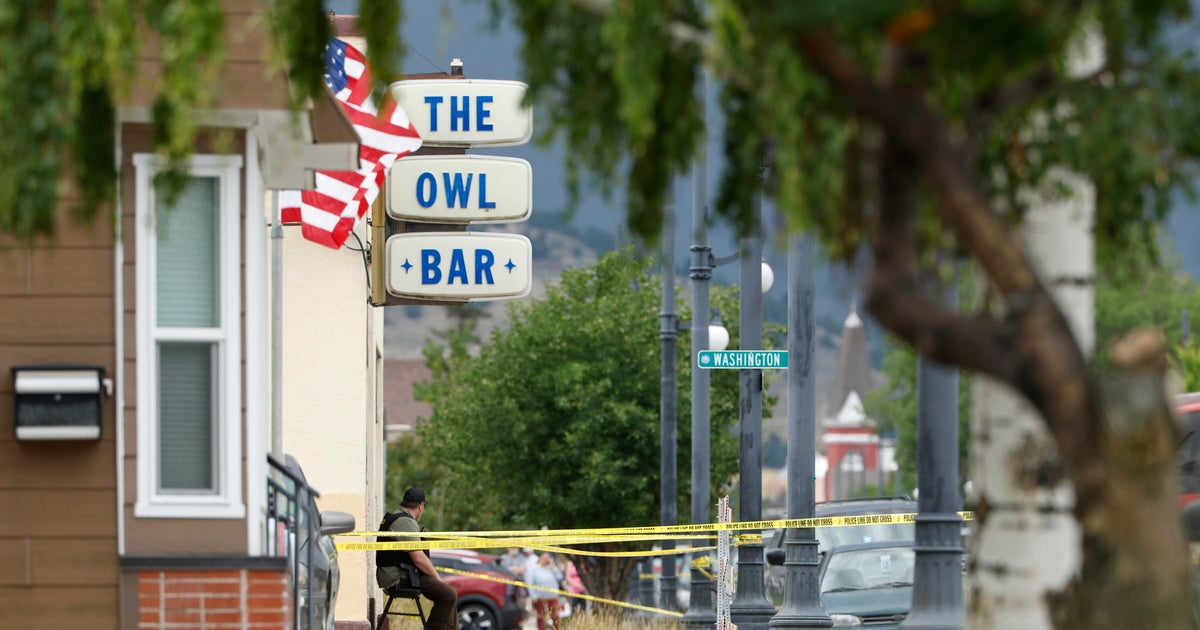Active Shooter and Police Officer Killed in Gunfight Outside CVS
#shooting #emory_university #centers_for_disease_control_and_prevention

Introduction
On Friday afternoon, an active shooter and a police officer were killed in a gunfight outside of a CVS near the Emory University campus and the Centers for Disease Control and Prevention (CDC). The incident took place at the Emory Point shopping center in DeKalb County, Georgia.
Key Details
The suspect, identified as 48-year-old Cedric G. Prather, was known to the police and had a criminal record. He reportedly entered the CVS with a gun and began shooting, prompting a response from the police. The officer who was killed has been identified as 24-year-old Edgar Flores, who had been with the DeKalb County Police Department for less than two years.
Impact
The shooting has left the community in shock and mourning the loss of both the officer and the suspect. The incident is a tragic reminder of the ongoing issue of gun violence in the United States and the dangers that law enforcement officers face every day. The Emory University and CDC campuses were placed on lockdown during the incident, but the lockdown has since been lifted and classes and operations have resumed. The investigation into the shooting is ongoing.
About the People Mentioned
Cedric G. Prather
Cedric G. Prather Jr. was involved in a tragic murder-suicide incident in Douglas County, Georgia, in early 2015. He fatally shot his ex-wife, Latoya Andrews, her boyfriend, and several of his own children before taking his own life. The events reportedly stemmed from an argument over which parent would claim their children on tax returns, compounded by recent personal stressors, including job loss. Prather had no prior criminal or domestic violence history in the county. During the incident, he shot two of his children, London, age 7, and Jeremiah, age 9, who died, while another child, Misha, age 15, was critically injured. A 13-year-old son was not at home during the shooting and survived. Neighbors and authorities described Prather as not previously violent or angry, and the incident was characterized as a sudden, devastating act. The case drew significant local attention due to its tragic nature and the impact on the innocent family members involved[1][2]. There are no publicly available records or reports indicating any other notable roles, key achievements, or professional accomplishments associated with Cedric G. Prather beyond this incident. His current relevance remains tied to this event, which remains a somber example of family violence and its consequences in the Douglas County community.
Edgar Flores
Edgar Flores is an actor and cinematographer born in Tegucigalpa, Honduras. He is best known for his role as Willy 'El Casper' in the critically acclaimed film *Sin Nombre* (2009), which brought him international recognition. Flores has also appeared in other films such as *90 Minutes* (2020), where he played the character El Hondureño, and *The Black Demon* (2023), portraying Crazy Eyes. His work spans acting as well as contributions to the camera and electrical department, reflecting his multifaceted involvement in film production. Flores's career highlights include his participation in *Sin Nombre*, a film noted for its authentic portrayal of Central American migrants, which has been well received by audiences and critics alike. Over the years, he has continued to work in both film and television, maintaining relevance in the industry with recent projects including *The Black Demon* in 2023. In addition to acting, Edgar Flores has worked behind the scenes in cinematography and technical roles, demonstrating a broad skill set in filmmaking. His career has earned him at least one award, underscoring his recognized talent within the film community. Currently, Edgar Flores remains active in the entertainment industry, contributing both on-screen and behind the camera. His work continues to reflect his Honduran roots and his dedication to storytelling through cinema[1][2].
About the Organizations Mentioned
Emory University
Emory University is a prestigious private research university located in Atlanta, Georgia, founded in 1836 by the Methodist Episcopal Church as Emory College. It was named after Bishop John Emory and initially established in Oxford, Georgia. The institution has a rich history, including closure during the Civil War when students enlisted in the Confederate army and the campus served as a hospital and Union headquarters. Post-war recovery was aided by significant philanthropy, notably from banker George I. Seney in the 1880s, enabling debt repayment, construction, and endowment growth[1][2]. Emory expanded over the years to become one of the fastest-growing research universities in the U.S., renowned for its contributions to medicine, science, and humanities. It hosts over seventy research centers tackling critical issues such as cancer, AIDS, Alzheimer’s, and Parkinson’s diseases. The university benefits from proximity to major institutions like the Centers for Disease Control and Prevention and the American Cancer Society, fostering collaboration and innovation[3]. A significant part of Emory’s identity is its Robert W. Woodruff Health Sciences Center (established 1966), named after the Coca-Cola leader whose philanthropy greatly influenced the university. This center integrates health education, research, and patient care, reflecting Emory’s leadership in health sciences[6]. Emory is also noted for its sustainability initiatives, including the pioneering WaterHub water reclamation facility and a high national ranking for green campus engagement. The university formally acknowledges its location on the ancestral lands of the Muscogee (Creek) Nation and actively promotes Indigenous history and accountability[4][5]. Notable achievements include the establishment of the Carter Center by former U.S. President Jimmy Carter, a Nobel Peace Prize laureate and Emory faculty member, which advances global peace, democracy, and disease eradication. Emory’s blend of historic legacy, cutting-edge research, and social impact makes it a significant institution in business, technology, and health sectors[3]
Centers for Disease Control and Prevention
The Centers for Disease Control and Prevention (CDC) is a premier U.S. public health agency established on July 1, 1946, originally as the Communicable Disease Center. It evolved from the wartime Malaria Control in War Areas program (MCWA) created during World War II to combat malaria around military bases in the southern United States[1][3][7]. Headquartered in Atlanta, Georgia, the CDC has grown from a regional malaria control unit to a comprehensive national and global health protection agency. The CDC’s mission is to protect public health and safety through disease control and prevention, health promotion, and emergency preparedness. It investigates and responds to emerging health threats such as infectious diseases—including COVID-19, influenza, and bioterrorism agents—as well as chronic diseases, injuries, workplace hazards, environmental health threats, and more[2][6]. The agency conducts scientific research via over 200 specialized laboratories nationwide, supports public health workforce development, and communicates critical health information to the public[6][5]. Throughout its history, the CDC has expanded its scope and structure significantly. It was renamed the Center for Disease Control in 1970, then the Centers for Disease Control in 1980 as it incorporated multiple centers, and finally adopted the current name, Centers for Disease Control and Prevention, in 1992 to emphasize prevention efforts while retaining the CDC acronym for recognition[2][8]. Its organizational breadth now includes centers focused on infectious diseases, chronic diseases, environmental health, injury prevention, occupational safety, and health statistics. Notable achievements include leading vaccination campaigns against diseases like measles and rubella, advancing injury prevention, and mounting global efforts against infectious outbreaks. The CDC also played a pivotal role in combating antibiotic misuse and bioterrorism preparedness. Despite past controversies like the Tuskegee syphilis study, the agency remains a leader in epidemiology and public health innovation, employing a multidisciplinary workforce of scientists, clinicians, and public health experts dedicated t
DeKalb County Police Department
The DeKalb County Police Department (DKPD) is a vital law enforcement agency serving unincorporated DeKalb County, Georgia, as well as the incorporated cities of Tucker and Stonecrest. With a population of over 730,000, the department plays a crucial role in maintaining public safety and order. The DKPD has been accredited by the Commission on Accreditation for Law Enforcement Agencies since 1991, reflecting its commitment to high standards in policing. **History and Structure**: The department's history is marked by significant events, including the tragic loss of 31 officers in the line of duty. The current chief, Mirtha V. Ramos, leads the organization, which is structured with various ranks, from Chief of Police down to Police Officer. This hierarchical structure ensures efficient command and operations. **Key Achievements**: The DKPD is recognized for its community outreach programs, such as the Mobile Crisis Unit (MCU) and the Community Policing Unit (CPU), which aim to strengthen relationships between law enforcement and the community. These initiatives provide behavioral health crisis alternatives and foster positive interactions with youth. **Current Status and Notable Aspects**: The department is headquartered at 1960 W. Exchange Place, Tucker, GA, and serves a large area. It is equipped with specialized units such as the Special Services Division, which includes helicopter air support and tactical responses to critical incidents. The DKPD also utilizes technology like FUSUS One for camera integration, enhancing surveillance capabilities. The department's mission is to deliver optimal police services in partnership with the community, ensuring professionalism, integrity, and accountability. This commitment to excellence positions the DKPD as a leader in law enforcement within DeKalb County.

















